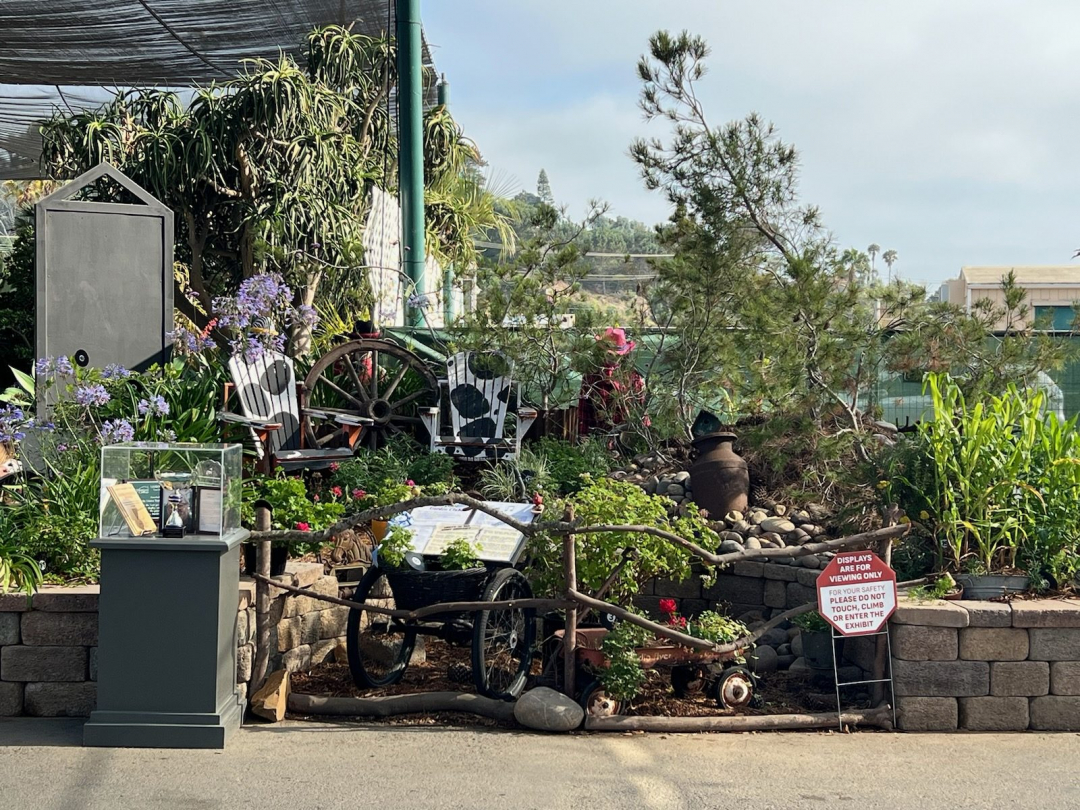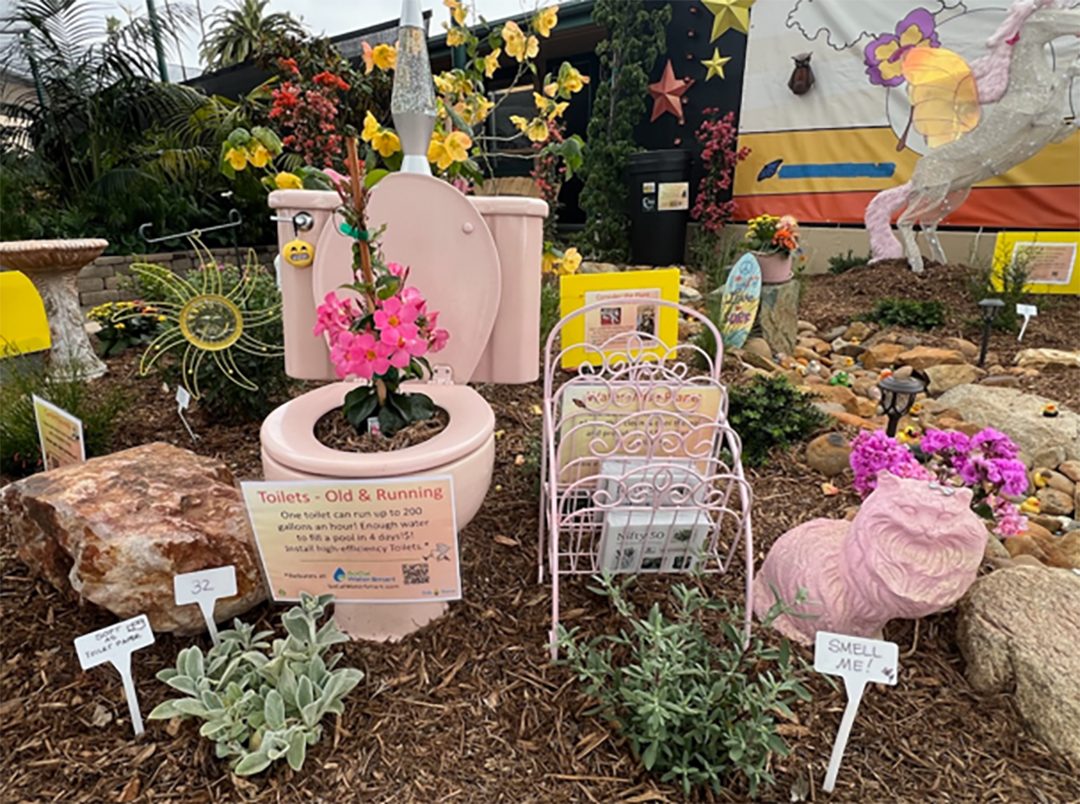Award-Winning County Fair Landscape Exhibits Educate and Entertain
San Diego County Fair attendees found inspiration for low-water-use sustainable landscaping projects from award-winning examples of creative climate-appropriate and native plant gardens at the Fair’s popular Paul Ecke Jr. Garden Show exhibit area.
Californians Learning About Sustainable Landscape Design

The Nifty 50 plants are attractive, non-invasive, easy to maintain, long-term performers and are water-wise once established. You can find them at local nurseries.
Debby Dunn, Senior Water Resources Specialist with the Water Authority, explains how Californians are changing their vision of the ideal home landscape design.
“More than ever, people are looking to create colorful landscapes that use water wisely and invite birds, bees and butterflies,” said Debby Dunn, Senior Water Resources Specialist with the Water Authority. “Interest in California native plants, as well as waterwise plants from Australia and South Africa, is skyrocketing.”
The Water Authority’s new Nifty 50 plant list and the soon-to-be-released Happy 100 plant list can help homeowners with landscape plant selection ideal for the San Diego region. Learn more at https://www.sdcwa.org/your-water/conservation/
Bonita Organic Garden Club Wins Multiple Awards

The Bonita Organic Garden Club’s display encourages healthier organic, sustainable gardening practices. Photo: San Diego County Water Authority
The Bonita Organic Garden Club received multiple awards for its ‘Singing Cowgirls’ garden, which features a beautifully rustic sustainable garden. The Club asked fairgoers to mimic nature and embrace organic gardening. Display signage described the negative impact of chemicals, which harm beneficial soil microbes, enter urban stormwater runoff, and reduce the nutritional value and flavor of fruits and vegetables.
Groovy Garden Fits Fair’s “Retro” Theme Perfectly

Humor is used to get attention for serious low-water-use landscaping tips in the “Groovy Garden” created by Water Authority Senior Resources Specialist Debby Dunn. Photo: San Diego County Water Authority
Dunn created her own individual “Groovy Garden” display with two themes: 1960s Groovy on one side, and 1970s Disco on the other. While the two sides were separated by a peace-shaped path and different color schemes, both had whimsical elements and colorful water-wise plants. Dunn’s exhibit won first place for depicting the Fair’s theme, “Let’s Go Retro,” plus three additional awards acknowledging her exhibits’ environmental messages.
“It’s all about creating a landscape that illustrates your personality and passion. For me, it’s Flower Power, fun, and plants that invite birds, bees, butterflies, and hummingbirds,” said Dunn.
Dunn demonstrated various ways to capture stormwater runoff with a dry streambed equipped with a variety of theme-based ducks, a rain chain, and a rain barrel. She also repurposed colorful thrift store and garage sale finds to educate through imagination and humor.
Using Humor To Convey Water-Saving Tips
“I created different rooms including a bedroom, kitchen, living room, and even a bathroom. Everything is upcycled including my pink and my avocado green toilets,” said Dunn. “They are there to remind people that toilet leaks are the number one cause of water loss. One running toilet can flow up to 200 gallons an hour, enough water to fill a pool in four days.”
“My garden promotes education with easy-to-implement tips. It’s definitely over the top because sometimes that’s how you catch somebody’s attention. People are going to stop and say, ‘Look at that pink toilet!’ Then they might read the sign and wonder if their toilet is running before they move on to the next garden.”
Dunn used theme-appropriate items, including a lava lamp and disco ball, to entice fairgoers to her display. “My goal is to bring them in with fun an
Low-Water Use Gardens Suit Many Design Styles
Dunn said low-water-use landscapes offer many different styles to suit individual tastes and needs, similar to interior design styles. “Everyone’s got their look and their style. It’s the same with plants. There are so many options and choices with these plants. There’s something for everybody.
“If you’ve got kids and dogs, you may need grass. But if the only person walking on the grass is the person mowing the grass, you likely don’t need the grass.
There are countless beautiful, native, and California-friendly plants you can place in your garden that will bring you entertainment and joy,” said Dunn.



